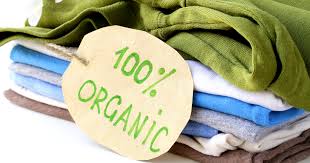- All posts
- 2020
- activewear
- adidas
- algae blooms
- autism
- bees
- body temperature
- boxer briefs
- BPA
- breathable fabric
- Brycen Tremayne
- burberry
- Cancer
- chemicals
- Climate Change
- college athletes
- comfort
- cotton
- cotton underwear
- Doctor
- Dudefluencer
- edc
- Endocrine Disrupting Chemicals
- environmental impact
- EPA
- fabric dyeing
- Fashion
- fast fashion
- fertility
- fertility crisis
- Florida
- Forbes
- Forever Chemicals
- Formaldehyde
- frequency
- Future of clothing
- GOTS
- GOTS certified
- Greenwashing
- heat generation
- history of cotton
- hormone
- hormone disruption
- industrial waste
- Is polyester toxic?
- Joseph Yerkovich
- Lifestyle Shirt
- Low Sperm Counts
- lung cancer
- lungs
- Marc Richard
- men's clothing
- men's cotton boxer Briefs
- Men's organic cotton boxer briefs
- men's organic cotton underwear
- men's organic underwear
- men's underwear
- Microfiber Pollution
- microplastic
- Mike Richard
- moisture wicking
- natural materials
- Nil
- non toxic living
- nontoxicliving
- opok
- Organic
- organic activewear
- Organic boxer briefs
- organic boxers
- Organic clothing
- organic cotton
- organic cotton t-shirts
- organic cotton underwear
- Organic cotton vs polyester
- Organic food
- organic hoodie
- Organic men's boxer briefs
- Organic men's clothing
- organic men's underwear
- Organic Performance
- organic performance clothing
- Organic Shirt
- organic shirts
- organic sweatshirt
- organic t-shirts
- Organic tee
- Organic underwear
- Organic Workout Shirt
- organic workout shirts
- Paris climate Accord
- Performance Shirt
- pesticide
- Pesticides
- petrochemical
- pfa
- PFAS
- Phthalantes
- Plastic clothing
- Podcast
- polyester
- Polyester Underwear
- recycle
- recycled plastic bottles
- recycled plastic clothing
- rpet
- Runoff
- sleep quality
- sperm
- sperm count
- Stanford
- Stanford Football
- Stanford University
- sustainable clothing
- sustainable cotton initiative
- sustainable development goals
- sustainable fashion
- Sustainable men’s clothing
- Synthetic chemicals
- synthetic clothing
- synthetic pesticide
- teflon
- timberland
- Toxic Chemicals
- Toxic clothing
- toxic dyes
- toxic materials
- toxic runoff
- toxic threads
- toxins
- Trump
- underwear
- water polo
- Water Proof Clothing
- White house
- Wolf Wigo
- Workout Clothing
- year in review

Why Polyester Makes You Itchy and Stinky (And Why Organic Cotton is Your Skin's New Best Friend)
Hey there, fashion sufferers! Ever slipped into that "performance" polyester shirt for a quick workout, only to emerge feeling like you've been wrapped in a plastic bag from hell? You're scratching...

The Hidden Dangers of Synthetic Dyes and Fabrics in Your Workout clothes
Discover the hidden health risks of synthetic dyes and polyester in your workout gear, from skin irritations to potential long-term toxicity. At Opok, we craft sustainable, chemical-free apparel to...

Why Polyester Clothing Is Basically Wearing Plastic—and What It Does to Your Hormones
It may surprise you—but your favorite workout gear or softest tee could actually be plastic in disguise. Here’s why that matters for your health.

The Frequency of Clothing: Why Organic Cotton Reigns Supreme
The idea of "frequency" in clothing stems from the understanding that everything in the universe vibrates at a specific frequency, including the materials we wear, which can have profound affects o...

Does wearing Polyester have an increased link between prenatal exposure and Austism?
Recent research has unveiled a concerning link between prenatal exposure to bisphenol A (BPA) and an increased risk of autism spectrum disorder (ASD) in children. BPA, a chemical commonly found in ...

The future of organic clothing: A sustainable and ethical revolution
The organic clothing industry is on the rise, and for good reason. As consumers become increasingly aware of the environmental and social impacts of their purchasing decisions, they are seeking out...
